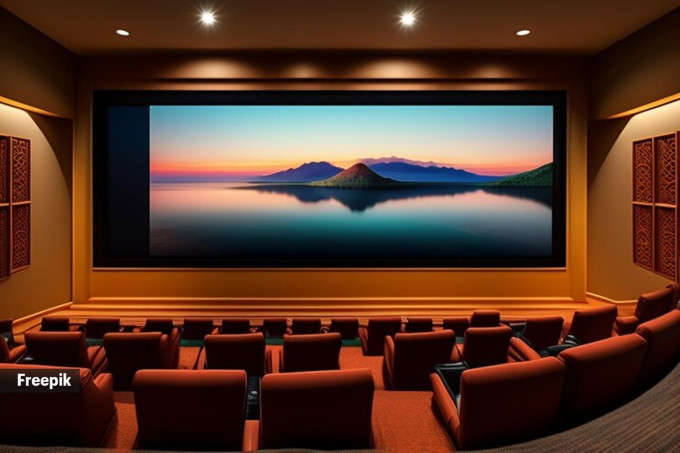Shenaz Treasury calls out her film for glorifying toxic behaviour by men. But do films hold the power to shape societal attitudes?
As prominent public figures and celebrities continue to condemn the horrific rape and murder of the Kolkata doctor during the early morning hours of August 9 at RG Kar Medical College and Hospital, Shenaz Treasury also took a bold stance by calling out her own film Ishq Vishk (2003) for promoting toxic behaviour as a way for men to woo women.
In the clip, she tells her followers, “Whatever pop culture has taught you, it’s wrong. Even in my movie Ishq Vishk there are some dialogues when I am sitting in the back of Rajiv’s bike and the guy is like, ‘baar baar break lagao’ (apply the breaks again and again)… have fun. That is wrong!”

View this post on Instagram
A post shared by Travel, Romance, Smiles (@shenaztreasury)
Her criticism isn’t just about a single movie but reflects a broader issue within pop culture, where unhealthy dynamics are often romanticised and celebrated. Movies and media have a profound impact on shaping societal norms and individual mindsets, particularly when it comes to gender roles and relationships.
Gurleen Baruah, occupational psychologist and executive coach at That Culture Thing, tells indianexpress.com, “ If you think about it, the relationship between movies and society is like a chicken-and-egg situation. It’s hard to say which comes first — do movies shape society, or are they simply reflecting how society already operates? It’s a bit of both, and it’s not always clear where one ends and the other begins.”
Portrayal of romantic relationships in movies and pop culture shaping societal attitudes
Baruah agrees that movies can act as a symbolic mirror to society. Whether people admit it or not, what they see on screen can subtly influence their perceptions and behaviours. It’s not always a conscious process, but over time, these portrayals can imprint on our minds and contribute to collective ideas about gender roles.
Consider the backlash against certain recent films, like the Ranbir Kapoor starrer Animal (2023), where some aspects were criticised for being out of step with contemporary values. If that same film had been released in the 90s, it might not have faced the same level of objection. This highlights how societal attitudes shift over time, and movies, whether influencing or reflecting these changes, play a crucial role in that ongoing evolution.
Psychological effects on men who internalise toxic behaviours often glamorised in films
Baruah explains, “When men internalise the toxic behaviours often glamorised in films and media, they might feel like they’re embodying what society expects of them — strong, dominant, and in control. Women, on the other hand, might unknowingly cherish these portrayals, mistaking them for love and admiration, without realising that they are actually perpetuating toxic dynamics. These depictions often suit traditional gender stereotypes, reinforcing the idea that men should be powerful and assertive, while women should be passive and accepting.”
This can lead men to imitate these toxic characters, she adds, feeling empowered by their aggression and dominance and believing that this is what others, including women, prefer. The reality is far more damaging.
For instance, think back to the 90s, when films would depict a rapist being asked to marry his victim in court as a form of ‘justice.’ This isn’t just a grotesque distortion of justice; it’s a reflection of how deeply ingrained toxic masculinity was — and in some ways, still is — in our society.
Baruah asserts that these portrayals don’t just harm women; they also deeply affect men. By glorifying these toxic behaviours, films and media create unrealistic and harmful expectations for men. They might feel they must always be the ‘alpha’ — dominant, emotionless, and in control. This toxic masculinity leaves little room for men to express emotions that aren’t seen as traditionally masculine, like vulnerability or affection.
 Movies can act as a symbolic mirror to society (Source: Freepik)
Movies can act as a symbolic mirror to society (Source: Freepik)
Need for healthier representation of relationships that promote respect and equality
Authenticity and genuineness should be the foundation, says Baruah. Filmmakers and content creators need to ask themselves: Do I really care about the message I’m sending? What is most important to me – selling content or promoting values contributing to a healthier society? Once they align with these values, they can begin to take deliberate steps to craft more responsible content.
Here are some strategies that can help in achieving this:
See through a woman’s perspective: Content creators should strive to understand and depict the world from a woman’s authentic perspective. This means moving beyond stereotypes and shallow characterisations to explore the complexities of female experiences.
Diversify viewpoints: It is crucial to gather and incorporate diverse viewpoints. This includes seeking input from people of different genders, cultures, and backgrounds to create a more nuanced and accurate portrayal of relationships.
Focus on genuine human experiences: Rather than relying on tropes or exaggerated drama, filmmakers should aim to depict genuine human experiences. This involves telling stories that reflect the reality of relationships, including the challenges and joys that come with mutual respect and equality.
Avoid glorifying toxic behaviours: It’s essential to consciously avoid glorifying toxic behaviours, such as dominance, manipulation, or codependency. Instead, filmmakers should highlight the negative consequences of these behaviours and present alternatives that emphasise collaboration, empathy, and mutual support.
📣 For more lifestyle news, click here to join our WhatsApp Channel and also follow us on Instagram
Disclaimer: The copyright of this article belongs to the original author. Reposting this article is solely for the purpose of information dissemination and does not constitute any investment advice. If there is any infringement, please contact us immediately. We will make corrections or deletions as necessary. Thank you.

